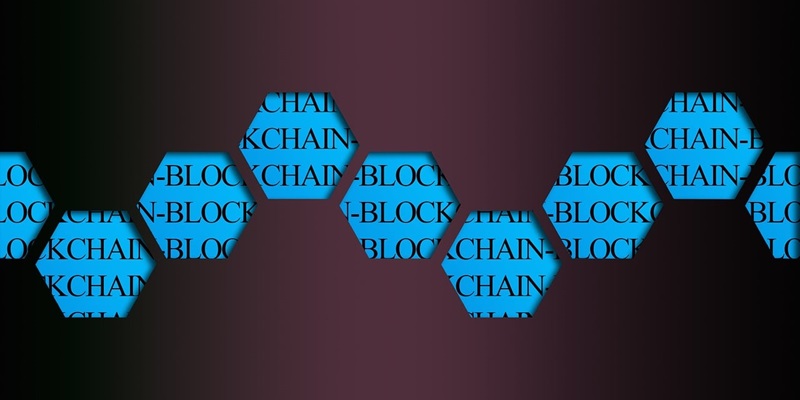The gaming industry stands on the cusp of a significant transformation with blockchain micropayments poised to revolutionize transaction methods. This innovative, decentralized system promises to overhaul traditional, often expensive transactional processes with speed, reduced cost, and enhanced security. A notable aspect of blockchain is its inherent transparency, which fosters trust among gamers. It guarantees the legitimacy of in-game assets, facilitating a robust and transparent digital economy. The integration of blockchain in gaming not only augments the user experience by offering authenticity but also fosters an environment where a genuine digital economy can flourish. As we move forward, blockchain’s capacity to ensure fair and verifiable transactions paves the way for a new gaming era, defined by equity and authenticity.
The Role of Blockchain in Transactional Evolution
Blockchain technology is making waves in the gaming world by offering a transparent and unassailable transaction system. This innovation provides an environment where every digital exchange is open to scrutiny and confirmation, promoting a secure and robust gaming sphere. Blockchain micropayments eclipse traditional transaction methods by eradicating the long wait times and hefty costs usually associated with them. This advancement not only benefits players who crave instant, fuss-free transactions but also developers who are driven to create animated, captivating gaming worlds.
Blockchain’s decentralized structure is pivotal to this evolution. By rooting out the need for intermediaries, it fosters a direct and efficient passage for transactions. Gamers now relish the immediacy of micropayments that neatly integrate into their virtual endeavors, emboldening developers to craft experiences that are as rich in narrative as they are in technical sophistication.
Smart Contracts: Enabling Complex In-Game Ecosystems
At the very core of blockchain’s intersection with gaming lies smart contracts. These autonomous protocols are the cornerstones for developers piecing together complex virtual realms, filled with an array of distributed rewards and authority-free events. Smart contracts execute transactions instantly when predefined conditions are met, eliminating manual oversight and streamlining in-game mechanics.
The ingenuity of smart contracts manifests in heightened gaming interactivity. They unlock new chapters or deliver immediate rewards through pre-scripted conditions, offering players a dynamic experience once beyond the realm of possibility. These contracts grant developers an unprecedented power to choreograph intricate gaming scenarios that operate with clockwork precision, delighting gamers and setting new industry benchmarks.
Democratizing the Gaming Industry
Blockchain micropayments champion a new era of inclusiveness in the gaming industry by dismantling traditional financial hurdles. This democratization propels a wave of unity among international gamers, inviting participation unhindered by the complexities of currency exchange and cross-border fees. The eruption of such a global gaming community fosters a deeper sense of shared passion and enjoyment across the myriad of borders that once segmented gaming demographics, leading to a richer, more varied gaming tapestry.
The outreach enabled by blockchain is not limited to financial inclusivity but also extends to the very essence of gaming culture. With a platform indifferent to geography, every player gets the chance to be an integral part of the collective gaming narrative, regardless of locale. This global village not only welcomes gamers from every corner but empowers them with equitable opportunities to create, share, and flourish within a shared virtual universe.
Non-Fungible Tokens (NFTs): Empowering Players with True Ownership
The burgeoning intersection of NFTs with gaming is indicative of a profound shift in the dynamics of in-game asset trading and valuation. Blockchain-based NFTs confer genuine ownership of digital items to players, marshaling in a peer-to-peer market where the community itself appraises the value of virtual goods. This thrusts the gaming marketplace into a new dimension—where the rarity and worth of digital assets are redefined and invigorated by player-driven economies.
The allure of NFTs is further magnified by the investment they inspire among the gaming community, nurturing a deeper connection with virtual acquisitions. Players no longer just collect items, they hold tangible assets that can be showcased, traded, or retained as part of a broader personal or communal narrative. Within the pixels of these digital realms, NFTs are a hallmark of authenticity and exclusivity, rewriting the ethos of virtual ownership.
The Gamification of Blockchain Technology
When the foundational pillar of blockchain technology fuses with gaming, an entirely new genre emerges—a space where gaming funnels into the blockchain, reinforcing and revolutionizing its structure. Decentralized gaming platforms exemplify this amalgamation of entertainment and function, urging gamers to not merely engage in play but also to actively participate in molding the blockchain’s future.
These platforms stand as a testament to the synergistic potential between gaming and blockchain. Through the act of play, users achieve more than enjoyment, they contribute to the very infrastructure that supports their experiences. It’s a dynamic ecosystem where every action on the virtual battleground reinforces the blockchain, all while providing a deep sense of engagement and collective contribution that goes beyond traditional gaming.

